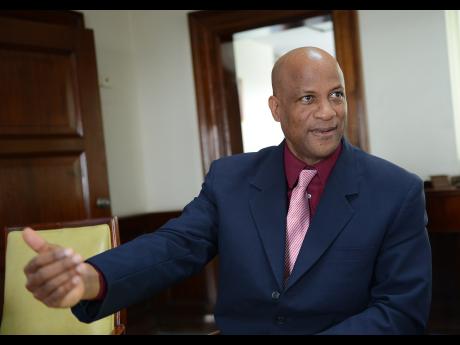Earth Today | NEPA to reclassify recreational water bodies as part of anti-pollution efforts
The National Environment and Planning Agency (NEPA) is moving to reclassify recreational water bodies to ensure the most important areas are protected from the negative impacts of pollution.
This is in accordance with its obligations under the Protocol Concerning Land-Based Sources of Pollution (LBS Protocol), which it ratified in late 2015.
"It (the reclassification) takes a watershed approach and so (is based on) those watershed areas that will contribute more in terms of the pollution loading as well as the sensitivity of the coastal environment," said Anthony McKenzie, the agency's director of environmental management and conservation.
"And there is going to be an early draft because we are going to need a wider discussion on it. It also needs to sit in the context of the regional sensitivity mapping that is a part of another programme of the LBS," he added.
That draft, McKenzie noted, is to be ready by March.
His revelations come as NEPA takes flak for its monitoring of water and air quality on the island, with the publication of the report titled Review of the Legal and Policy Framework for Air and Water Quality in the Island of Jamaica.
The report, which has retired senior lecturer at the University of the West Indies, Dr Anthony Greenaway, as the main technical researcher and contributor, was produced by the Jamaica Environment Trust, with financing from the Commonwealth Foundation.
Among other things, the 80-page document identifies gaps in the legal framework as well as licensing, monitoring, equipment and testing inadequacies, and insufficient data dissemination as challenges to the realisation of clean air and assured clean water on the island.
Against this background - and having unearthed the evidence to support their claims - the report calls for, among other things, the "reclassification of coastal and fresh waters according to their intended uses as is done in many Caribbean and other countries.
"Concentration of limits and regulations could vary between classes," it added.
PROTOCOL REQUIREMENTS
Meanwhile, also in line with the LBS protocol requirements, McKenzie said legally binding standards for sewer effluent and discharges have been put in place even as they receive support for the development of a national programme of action for integrated watershed and coastal area management and/or the prevention of pollution from land-based sources and activities.
"There is a nutrient management programme that will be launched next month and that is looking at measures to contain the nutrients from primarily agricultural sources. It is a project supported by UNEP (United Nations Environment Programme, now UN Environment). There is a litter programme as well that is part of the LBS framework that we will be launching," he noted.
The protocol serves as the regional instrument in the wider Caribbean region for the implementation of UN Environment's Global Programme of Action for the Protection of the Marine Environment from Land-Based Activities and its Regional Seas Programme.
On coordination of capacity-building training in wastewater treatment to improve environmental monitoring and assessment, McKenzie said that is a work in progress.
"There was some support to the University of Technology to establish a training programme. That was launched earlier this year with support from UNEP as well, and we partnered on that," he revealed.
"They have a training programme now to train wastewater technicians and operators. They have also built the capacity in their lab to analyse for certain parameters," he added.



